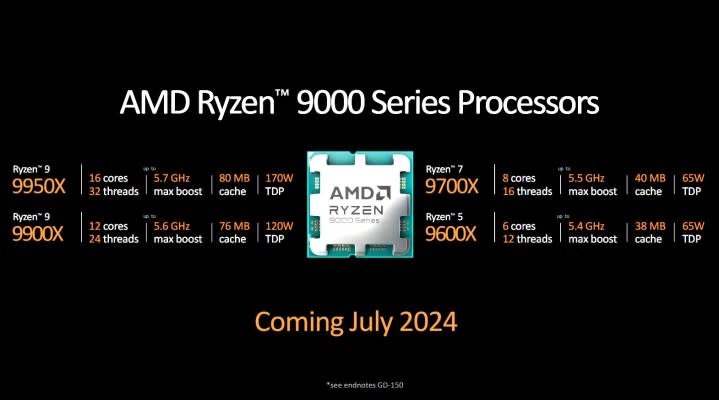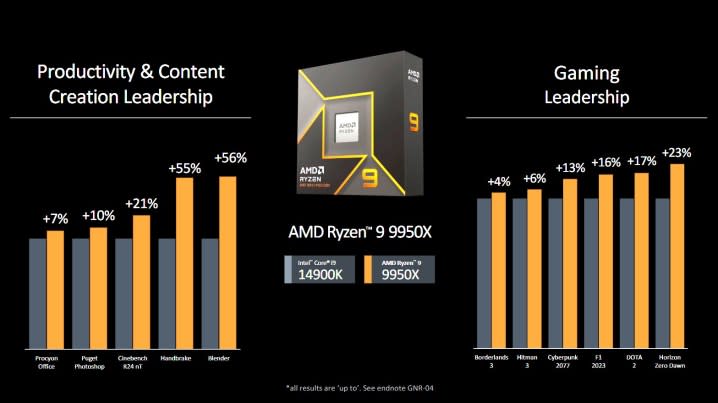AMD’s new Ryzen 9000 is slower than its fastest previous-gen chips

AMD recently unveiled its new Ryzen 9000 series of desktop processors based on the new Zen 5 architecture. While these new CPUs bring numerous improvements and advancements, they are not expected to surpass the gaming performance of the previous generation’s Ryzen 7000X3D models, which feature 3D V-Cache technology. While this might come as a surprise to some, it underscores the unique advantages of AMD’s 3D V-Cache technology in gaming scenarios.
The Ryzen 9000 series promises a host of upgrades over the Zen 4 architecture used in the Ryzen 7000 series. These enhancements include better energy efficiency, higher core counts, and architectural refinements aimed at boosting overall performance. The Zen 5 chips are expected to deliver significant gains in multi-threaded workloads and general computing tasks, making them a compelling option for a wide range of users.

However, when it comes to gaming performance, the Ryzen 9000 series might not outshine the Ryzen 7000X3D models. In an interview with Tom’s Hardware during Computex 2024, AMD Senior Technical Marketing Manager of Consumer Processors Donny Woligroski said that while the new chips will come close, they won’t be able to match the gaming prowess of their predecessors equipped with 3D V-Cache.

3D V-Cache stacks additional cache memory on top of the CPU die, significantly increasing the amount of L3 cache available to the processor. For gaming, where quick access to large sets of data is crucial, this added cache can dramatically reduce latency and improve frame rates. The impact on gaming performance has been substantial. In many scenarios, the Ryzen 7000X3D CPUs have outperformed not only their AMD counterparts but also Intel’s high-end gaming processors. The enhanced cache allows for smoother gameplay and higher frame rates, particularly in games that are heavily reliant on CPU performance.
However, it is important to note that the Ryzen 9000 series will still offer strong gaming performance. The improvements in core architecture, clock speeds, and overall efficiency will ensure that these new processors remain competitive in the gaming market, even if they don’t take the crown from the X3D models.
Looking forward, AMD does have plans to integrate improved 3D V-Cache technology in future iterations of its processors. This suggests that while the initial Ryzen 9000 series may not feature this technology, subsequent models or refreshes could bring even greater gaming performance enhancements. AMD’s commitment to 3D V-Cache technology also indicates that the company recognizes its significant impact on gaming and aims to leverage it in future products.


